If you are reading this right now you might be desperate to learn how to help a sore loser. You are all too familiar with this scene:
The family is playing a board game, you've already implemented all these tips for a peaceful family game night, and the game is about to come to an end.
But, oh dear. Big brother is headed for the win.
Inside you are cringing! You know what is going to happen next....
Little brother is going to throw a tantrum. He's going to throw things, he's going to yell. But worst of all, he's going to say,
"I'm stupid."
"I can't win at anything."
What's a parent to do? You don't want to raise a sore loser but nothing seems to help. You've done all the standard advice:
You have:
- modeled good sportsmanship
- expressed empathy
- tried to integrate some kind of mindful calm-down technique
- given the standard platitudes, "It's just a game. It's the luck of the draw. You'll win next time."
Nothing works! ARGHHH!
Let me tell you that I love playing board games. Love it. I love playing games with my kids. But every time I do, I know that I may also be on the receiving end of the dreaded tantrum, if one family member—who shall remain nameless—loses.
Things have gotten better, but not because of the standard advice. I could model good sportsmanship until I am blue in the face and it would make no difference. I could say that "I understand. Losing can feel yucky," twenty dozen times and he would not care. And forget some silly breathing technique. Ha!
I bet many of you are in the same boat. In fact, I know you are because you've told me!
So what do you do? First I'm going to tell you my techniques, but I also put the question out to you, my loyal email subscribers (group hug!) and you had some great suggestions, which I share below in Part 2!
How to Help a Sore Loser Part 1
Remind the Child that Games Are Competitive
Whenever we began a game I would ask my child directly, "Am I allowed to win? Or would you rather I let you win?" I did this very matter-of-factly. It reminded him that the game would have a winner and a loser, and that if he wanted me to "let him win" it would not be as meaningful for him as if he had lost without me "cheating to lose."
He always said he wanted me to play to win, which meant he had to acknowledge out loud that he knew he might lose.
However...
.... near the end of the game, if I was about to win, I would ask him, "I'm about to win, is it okay if I win and we start another game? Or would you rather we play this game a little longer?" Even if he didn't want me to win the game, answering the question helped him realize that his win was not really very meaningful, but there was still no tantrum so he could process what had happened.
This is a technique I only used when I played one on one games with him. I looked at it as a "training session." It would obviously be unfair if I used this method when others were playing with us.
Actively Praise Good Sportsmanship in All Walks of Life
I found this is be a real boon for both sportsmanship and relationship-building. When I caught him being a good sport over little things, like not taking the last ice cream bar or sharing a toy with a friend, I praised it not just at the time, but well after the fact. So the next day, walking to school I might say, "I really appreciated how yesterday you let your brother have the last ice cream bar. That was very sportsmanlike of you!"
Play Cooperative Board Games
Cooperative board games also led the pack when I solicited your ideas for combating poor sportsmanship. Even now, we all still love cooperative board games. There is no single winner, the players win or lose together. I've featured several of our favorite cooperative games in my games of the month series. You can read about them here:
We recently played Shadows in the Forest, a play in the dark board game that is semi-cooperative and an excellent transition game for kids who are sore losers.
Here's another way of making a game less competitive, from a parent:
Pick a game everyone enjoys and set a goal of points that seems reasonable for everyone to score together (individual scores added up). Now multiply that by 3 or 4 and announce that you are going to keep a running tab of the totals and when you reach that magic number, the whole family will go out for something special. That way everyone's contribution of points counts.
Play Games of Chance
I love dice games because there are plenty of game options which require no skill at all and are pure luck. When a game is based on luck and not skill it is easier to brush off a loss. I have really hammered home that it takes no skill to win one of these games (thus banishing the "I'm stupid!"s) and so when we play these games of chance I usually say right away, "rematch!"
Our favorite games of chance:
Say "YET"
"Yet" is an important word in teaching kids to develop a growth mindset. It was not a magic bullet for us, but it helped set the tone for what I was trying to teach my child.
Child: "I always lose!"
Parent: "It sounds like you are frustrated. You haven't won today, yet."
Or,
Child: "I suck at the game."
Parent: "You are still learning, you haven't mastered the skills, yet."
These growth mindset picture books may help you teach the yet concept to your child.
Reward Graceful Losing
This method is not for everyone and I didn't like it at first (because I generally recoil from point/reward systems), but because it was recommended to me by a therapist we gave it a go and I found it to be helpful.
We set up a reward system in which every time he lost a game and shook hands to say "good game," he would get a point. We had a little jar full of paper slips that had prize ideas on them like, "go to the movies," "get an ice cream," "play catch with dad before bed." The rewards were not about getting stuff, but about spending even more time together. At the end of 10 points he would get to pick a prize from a jar.
I thought he would try to lose in order to accumulate points more rapidly. That is the obvious danger of this system, but he didn't! And the point system sort of petered out as he got used to losing more gracefully.
How to Help a Sore Loser: Part 2
Sore Loser Reversal
Several of you mentioned trying a role reversal similar to what this parent describes:
With my son, we started to reverse the standards... it became whoever LOSES wins. I also started ‘acting out’ a bit of poor sportsmanship and expressing how I felt, eg . “I’m so disappointed when I lose, it makes me angry, sometimes it feels like I’ll do anything to win,” and asking my son’s advice to help me. Eg. “How do you think I could deal with my frustration when I lose? What should I do if someone else wins to help myself feel better?” This helped more than me lecturing or advising him & he had really good ideas. He also started to get better at losing as he tried to show me how it’s done!
I like that. I would enjoy being very dramatic. Hee hee. But in all seriousness, her solicitation of her son's advice is brilliant.
Praise the Skill, Not the Result
Instead of focusing on the outcome, acknowledge your child's game play during and after the game. I've recently starting doing this, thanks to you guys and I love how well it works!!
Once he played with four adults and although he did not win once, his uncle made such great comments about how he (the uncle) had to be so careful because he nearly lost to our son that our son felt so good about it, he never even noticed that he lost.
Another parent describes a similar strategy,
In addition to general sportsmanship advice, we always make sure to say things like, "Wow, that was a really challenging game! Thanks for making it so hard for me!" or "Wow, you really played a great game! You put a lot of effort into that one!" so that he is getting more praise for the effort and for trying and less congratulations for winning.
Make Winning Less Rewarding than Losing
This tip made me laugh, I like it!
Winner cleans up.
That's the rule in our house with 6 kids. It has helped take some of the sting out of losing (for some of the kids) and some of the gloating out of winning (for some of the kids). Overall it has made post-game time more pleasant for mom. 🙂
Develop a Mantra
Earlier I mentioned that "advice" hasn't worked for us, but I like this parent's strategy because the saying because more of a family tradition, rather than a lecture.
When I was little, my dad would often quote a line from the baseball movie Bull Durham: “Sometimes you win, sometimes you lose, sometimes it rains.” My youngest daughter struggles with losing, so before we play we say this phrase together as a kind of zen mantra to remind her that it won’t always end in a win. (Sometimes we need to do this again during the game and at the end, too!) She always gets a big kick out of telling us “sometimes it’s everything!” on rainy days when we play games 🙂
Here's a similar strategy:
My mom was visiting last week and, after observing his typically sour reaction to his not winning at a game of Uno, she insisted that ALL of us, after every game, say immediately and enthusiastically to the winner, "Congratulations, good game!" I was annoyed by this at first, thinking that a script for all to follow so specifically seemed over the top and we've tried offering him options, but this simple and very straightforward thing worked wonders for my son! Since we've started doing this exactly, he seems happy to end the game on a positive note every time, liberated from his need to be the winner by having this job to do.
Or,
My mother used to say very matter-of-factly, "Some days it's your turn to win. Some days it's your turn to lose. Today was your turn to lose. That's just the way life is." And then she would move on to the next thing and not make a big deal about it.
Let Children Lose
A teacher abroad wrote to me about her school's attitude that being disappointed and even crying over losing is important developmentally. Before a big event, such as their school's sports day, they take the time to prepare the children for any outcome. (Note: I edited this for length.)
We tell the children (as early as 4 years old) that they have to practice a lot and invest time in exercise so they have a chance to win. Because muscles will only grow with practice (just like getting better at board games will only come with practicing more, seeing patterns and learning strategies so that next time you won't lose!), the more you practice the more you CAN win. We even say "there are more chances you can win."
Then, still before D-Day we tell them: "So now tell me, what does it mean when one loses at a game? Does it mean one is no good at it?" And some of them will spontaneously say: "No! It means we didn't practice enough!" or "we need to practice more!"
What I love about this approach is the growth mindset focus and that the adults work on preparing the child so even when he or she gets upset, the lesson of sportsmanship is still instilled.
Along the lines of letting children lose, this advice comes from another parent:
If your child starts to lose it over losing, try supportively ignoring them. Nothing you can say in the heat of the moment will be helpful anyway. If you need to respond, keep it brief and low key, and don't try to teach skills or direct their behaviour.
I totally agree that you can't say anything that will stick while they are having a breakdown!
Will My Child Ever Be Okay with Losing?
Maybe. Maybe not. If you have read all the way to the bottom of this post, it is probably because you are searching for answers and you know from personal experience that learning how to lose graciously does not come easily to many children. I'm sure we all know a few overly-competitive adults, too.
Obviously, I want to be able to play a game with my child, or watch him play on a sports team without worrying about the size of the blowup at the end, but I also know it is a process and I can celebrate little wins (pun!) when he doesn't get upset, or when his disappointment doesn't last as long as usual. I know that if I keep plugging away and being kind, showing empathy and support when needed, he will take to heart the lessons of being a gracious loser.
A big thank you to all of you who offered your advice for how to help a sore loser!
Happy playing!



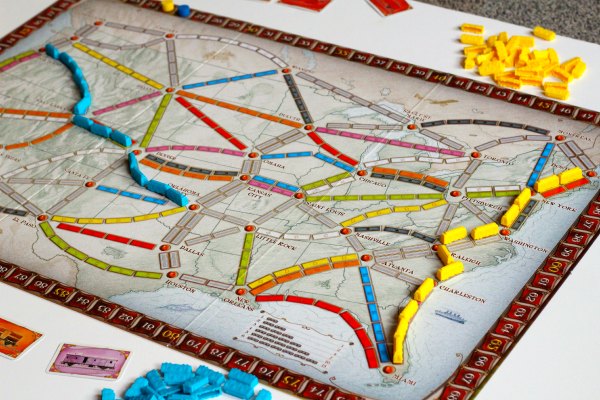
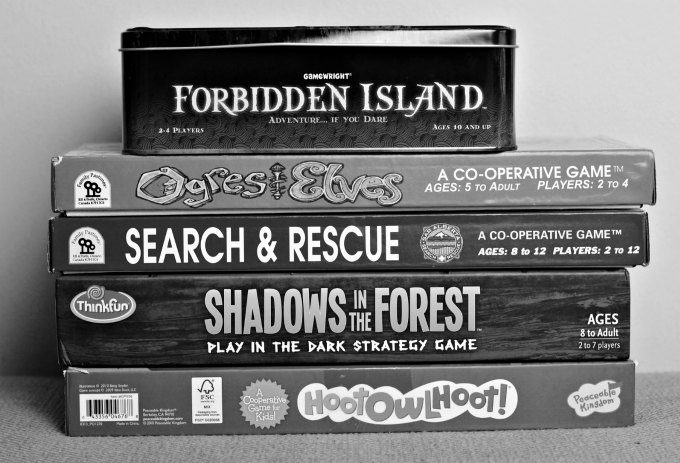
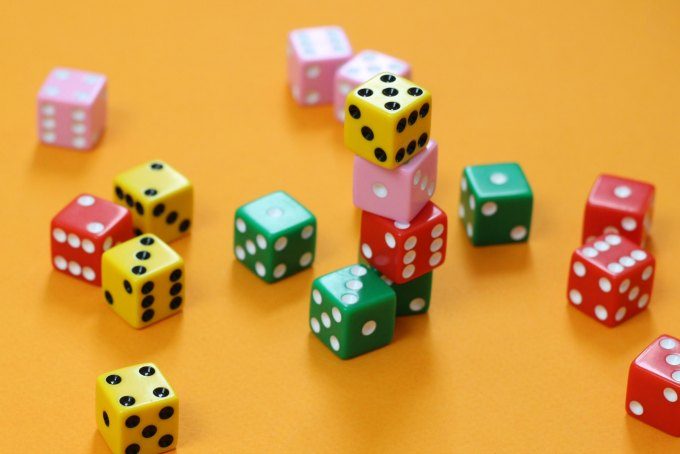
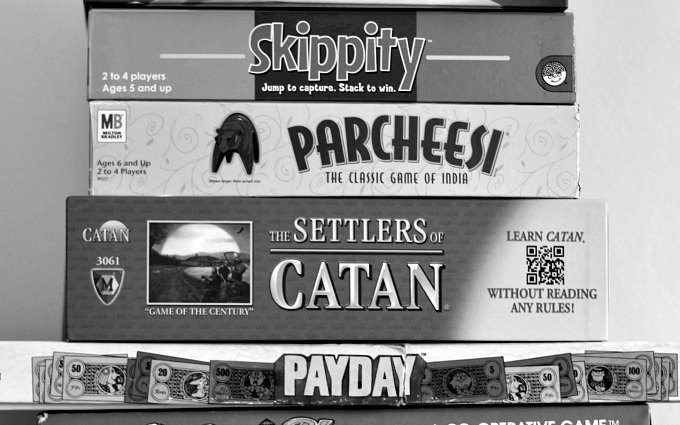
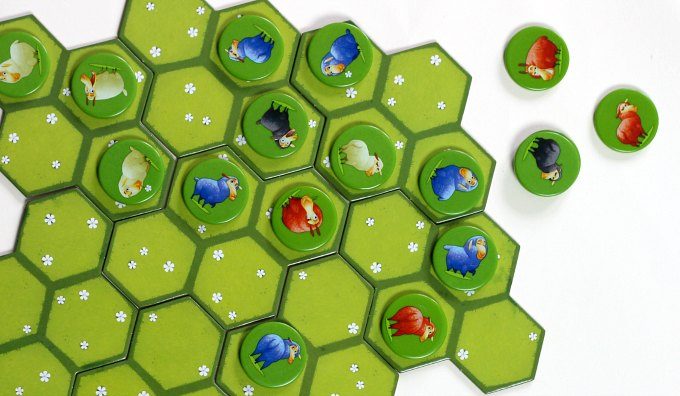


Ryan Billingsley says
Great article! Thanks for all the good ideas. We recently wrote about the question "is it ever okay to lose on purpose to your kids" on our site and we decided on something similar to your "ask them straightforward if they want you to let them win advice." I think the honesty is key. Other than that, building up their confidence and growth mindset is of the utmost importance!
Erica says
Yes, totally agree about the honesty part.
Jill says
I love the ideas in your post. I am a mother of two - now aged 22 and 24! I spent many hours "in the cupboard" (literally) with the 22 year old (boy) who HATED to lose when he was under 10 and would run crying to his room and hide in the cupboard.
I would like to give my advice ... keep playing games ... keep modelling and praising good sporting behaviour ... keep congratulating the winners ... keep trying your hardest as an adult but look for handicapping strategies that make it 'fairer' for the younger players.
The 22 year old is now a particularly well-rounded but competitive gamer and delightful young man (OK, I'm his mother!)
Hang in there and delight in your kids growing up being good players in the game of life.
Diana says
I absolutely enjoyed reading these tips! Great job at gathering other families' perspectives on the topic, too! I often don't play to avoid the reactions, but I now realize that I am not setting up a learning opportunity. What a shame on my part. No better time than the present, right? I'll start off with a co-op game per your recommendation!
Erica says
I'm so glad the tips have given you inspiration!
RK in Denver says
My brother, seven years older, taught me to play chess when I was eight. He never, not once, threw the game, or let me win. He said, in a very matter of fact way, Chess is hard--it's not supposed to be easy. Keep practicing and one day you will win and it will feel great! Until then, you're learning to play better.
That said, he didn't go out of his way to crush me, but he didn't make it easy either. And the day I shocked him and captured his queen I still remember to this day almost fifty years later.